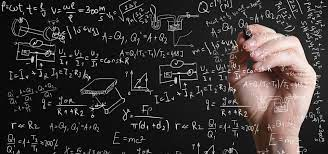
May the (fifth) force be with you…
Quote of the week: “there might be monsters we haven’t yet imagined, that are emerging from the vacuum interacting with our muons”.
No. Not a cheesy bit of dialogue from Dr Who or Star Trek. Nor some new claim from the Dyson people. The quote is from a very excited chap from a Chicago-based laboratory which thinks it has found the missing fifth fundamental force of physics.
Perhaps like me, you have lived your life, blissfully unaware that until now, four fundamental forces of physics have governed the behaviour of every particle and planet in the universe.
The “Standard Model” (stay with me here) which has been the accepted standard explanation of how things hang together describes three of the fundamental forces – electromagnetism, the strong force that holds particles together and the weak force involved in radioactive decay. (These are, apparently, incompatible with the fourth force, gravity. Meh…There’s always one isn’t there?)
Now, scientists have found that a type of subatomic particle called a muon, behaves significantly differently in a magnetic field than it should according to the accepted laws of physics.
Insight cannot be alone in wondering, so what?
It would be boorish to knock what is clearly a significant scientific breakthrough. At least, to those who understand it. The fact that most of us are alive is down, thankfully, to curious and talented people who’ve focused their curiosity on developing medicines, anaesthetics, satellite communications and the like.
But this news, carried on the front page of the Times and in the Today programme, offered absolutely no practical purpose to which this world-shattering (literally?) discovery could be put.
Interviewees, Professors Brian Cox and Tara Shears were beside themselves with excitement about what the new force might mean about our understanding of the universe – but didn’t articulate what it meant for us Earthbound mortals.
Will the appearance, or behaviour of muons, hasten the cure for cancer? Will they reduce our need for plastic or fossil fuels? Or, will they give us something that’ll help us to avert global warming? Nobody has yet offered a practical application.
And, in these straightened times, does having a better understanding of the structure of our universe come across as just a teeny-weeny bit indulgent? Couldn’t all that money and brain power work out the mystery of how to speak to someone from BT customer services? Or solve the puzzle of how the NHS works? These constitute the limits of most people’s universes.
I cannot be alone in having a life-long loathing of the very word “physics”. School, and a particularly inept teacher, ruined that subject for me. Which is a travesty. Physics should be a joyous subject for anyone possessing a muon of curiosity. After all, if it moves, it’s physics.
That the radio interview and news articles, like my teacher, failed to ignite my interest (is that chemistry?) in the fifth force of nature is of little consequence. But, is this esoteric, scientific showboating how science and STEM subjects should be presented to the scientists of the future?
As for these muons. I wonder if poor old gravity will at last find itself in more compatible company?

